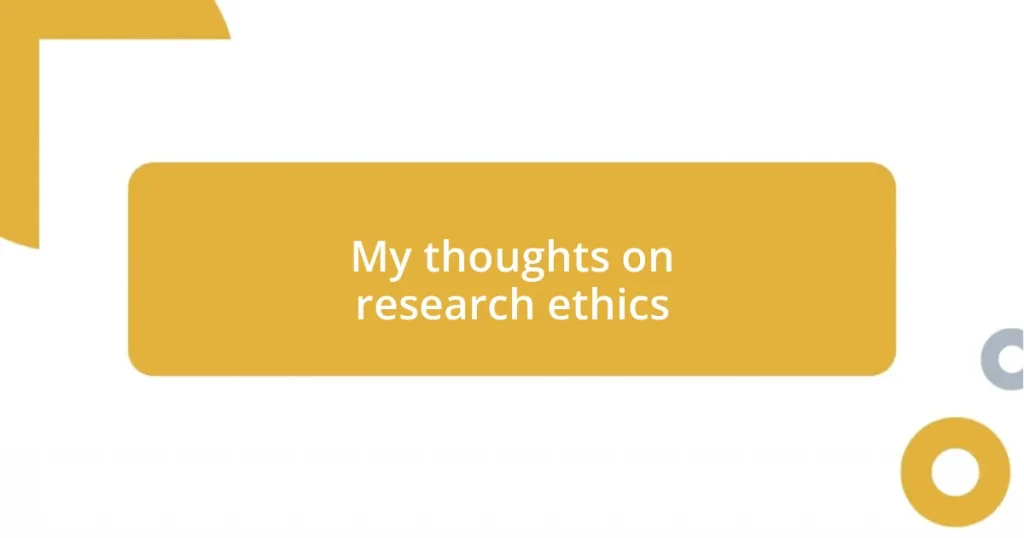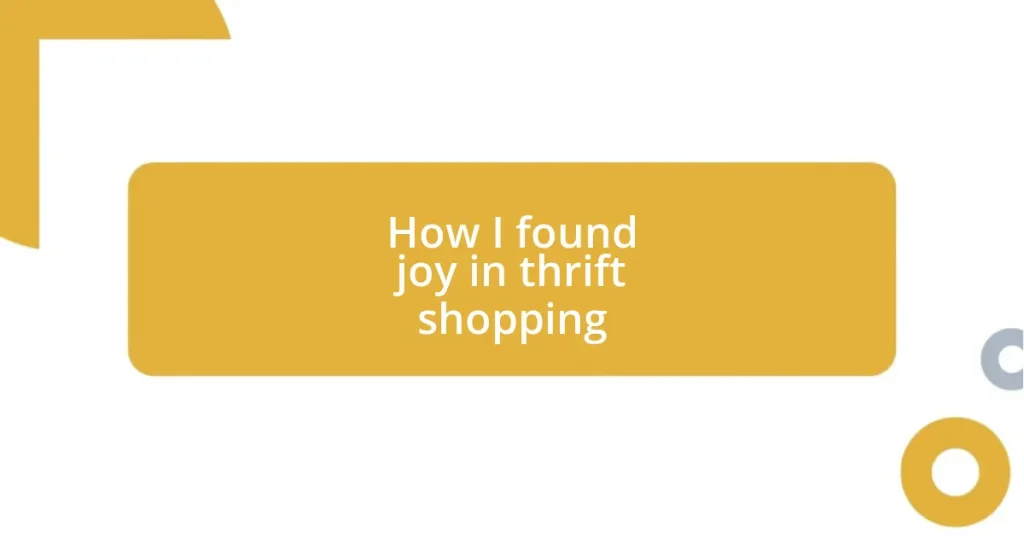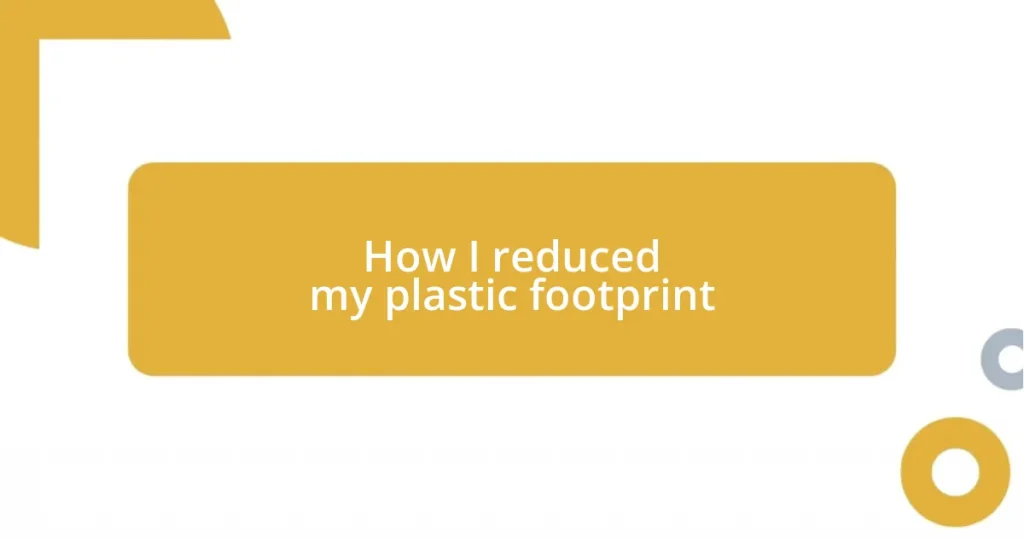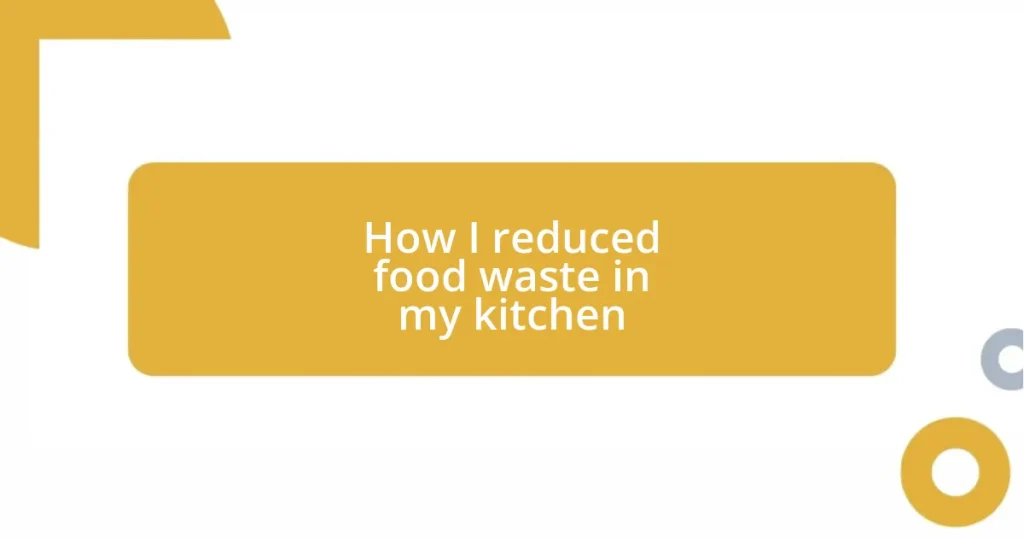Key takeaways:
- Informed consent, minimizing harm, and justice are fundamental principles of research ethics that enhance participant protection and research credibility.
- Ethical research practices foster trust, prevent long-term repercussions, and encourage accountability within the academic community.
- Common ethical dilemmas include data integrity, informed consent, and confidentiality, highlighting the importance of integrity in research methodologies.
- Ongoing education and ethics review processes are crucial for adapting to future challenges and fostering a culture of ethical reflection in research.
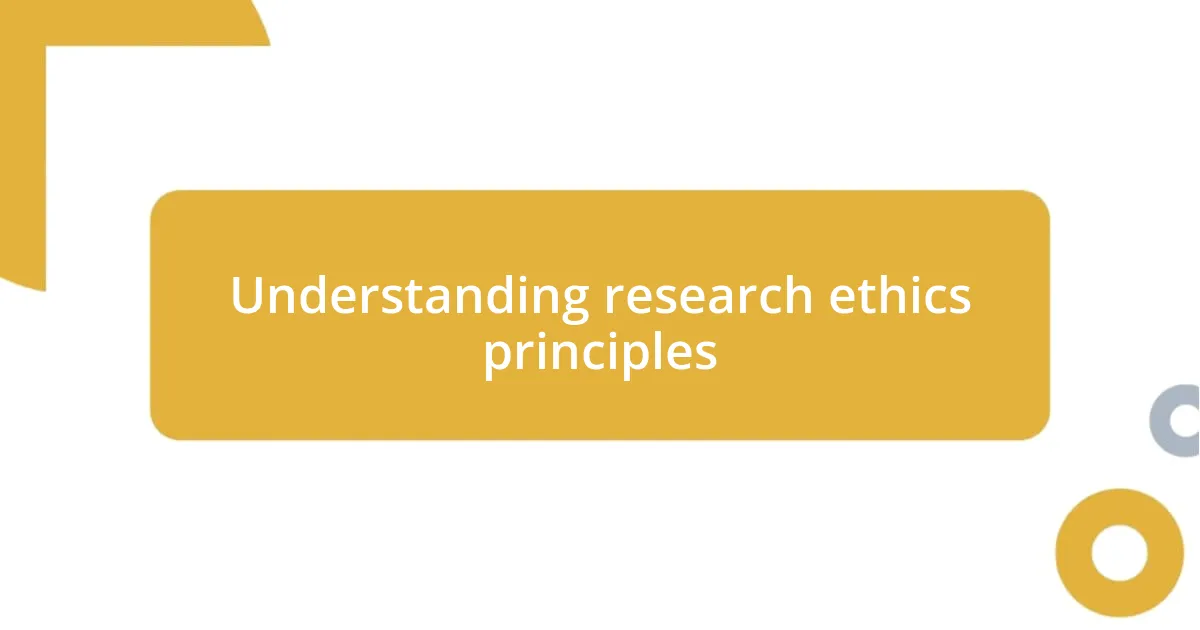
Understanding research ethics principles
Research ethics are fundamentally about ensuring the integrity and humanity of research activities. I remember the first time I encountered the principle of informed consent; it struck me how crucial it is for participants to understand what they’re getting into. Have you ever thought about how this principle not only protects the participants but also enhances the credibility of the research findings?
Another core principle is the need to minimize harm. Reflecting on my experiences, I recall a project where we had to weigh the potential benefits against the risks involved. It was a tough conversation, but it emphasized the moral responsibility researchers have toward their participants. This principle challenges us to ask ourselves: are we truly prioritizing the well-being of those involved?
Justice in research is an often-overlooked aspect that really resonates with me. I once read about a study where a disadvantaged group was overly represented without benefiting from the research outcomes. It made me realize that equitable treatment matters deeply. We need to ask ourselves, are we ensuring that the burdens and benefits of research are distributed fairly? These reflections help underscore why understanding and practicing research ethics is essential for the integrity of our work.
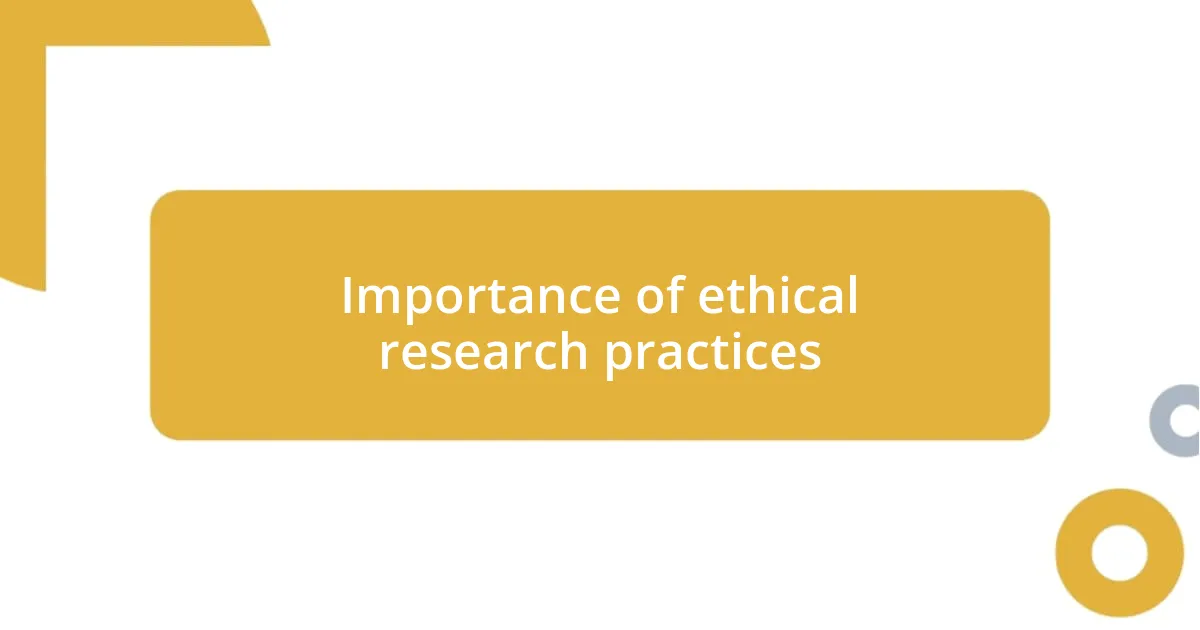
Importance of ethical research practices
Ethical research practices are vital for fostering trust between researchers and participants. I recall a time when I was part of a study that initially overlooked the importance of transparency. When this oversight was addressed, the participants were more inclined to share their genuine experiences, enriching the data we collected. It struck me then how ethical practices not only protect individuals but also enhance the quality of the research.
Moreover, ethical research practices can prevent potential long-term repercussions. I was involved in a project that examined sensitive social issues, and we had an ethical obligation to consider the impact of our findings on the community. This experience reinforced the idea that ethical considerations extend beyond the immediate research context. They require ongoing reflection about how our work might affect lives down the road.
Finally, I believe ethical research practices contribute to a culture of accountability in the academic community. I once sat through a seminar where a researcher candidly discussed their missteps due to ethical negligence. This openness inspired others, including myself, to critically evaluate our own practices and commit to a higher ethical standard. It reminded me that each of us plays a part in building a responsible research environment.
| Aspect | Importance |
|---|---|
| Trust | Builds a trusting relationship between researchers and participants |
| Long-term impact | Considers the potential effects of research beyond the immediate study |
| Accountability | Encourages a culture of responsibility within the research community |
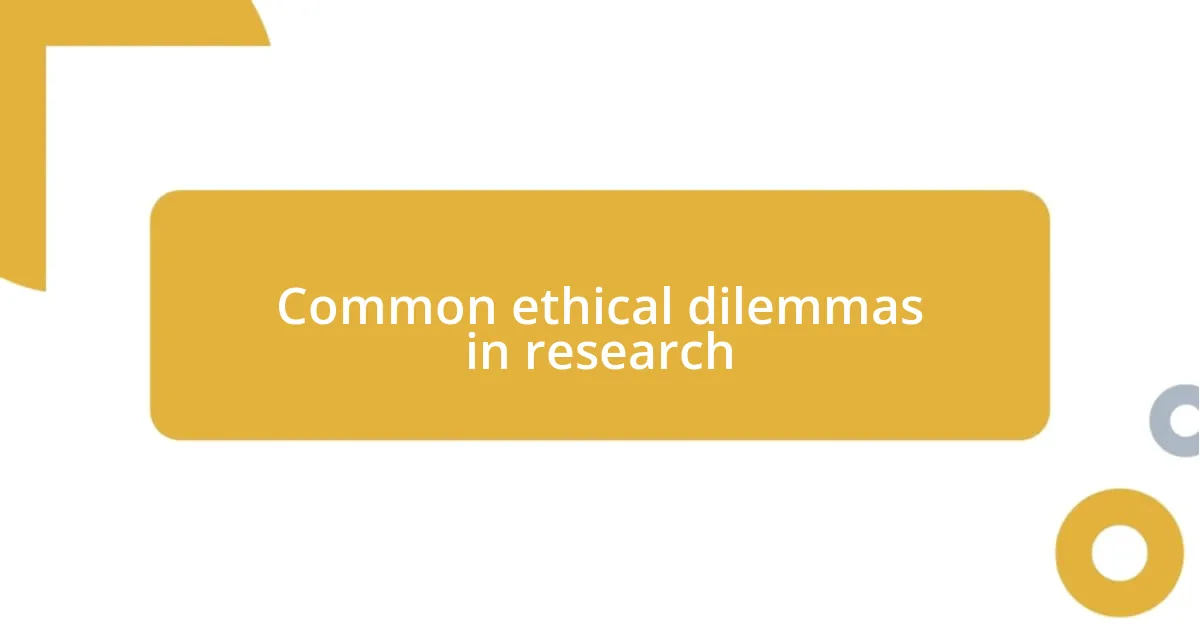
Common ethical dilemmas in research
One common ethical dilemma I often reflect on is the issue of data integrity. There was a time when I found myself grappling with the temptation to “fudge” some numbers to make a project’s findings appear more compelling. It was a moment of moral reckoning for me; the pressure to publish can sometimes cloud judgment. I learned that the consequences of compromising data not only harm the credibility of the research but also mislead the very people the work is supposed to serve. The ethical path, though often more difficult, invariably leads to more authentic insights.
The following are additional ethical dilemmas that researchers frequently encounter:
- Informed Consent: Ensuring participants fully understand what they are consenting to, which can be challenging in complex studies.
- Confidentiality: Protecting participant identities can be tricky, especially in small communities where anonymity is hard to maintain.
- Pressure from Sponsors: Balancing the expectations of funding bodies while adhering to ethical standards can lead to conflicts of interest.
- Vulnerable Populations: Conducting research involving at-risk groups raises questions about exploitation and protection.
- Publication Bias: The tendency to selectively report positive results can skew the available literature and misinform future research efforts.
Each of these dilemmas not only tests our resolve but also shapes the way we approach our work. I can’t stress this enough—navigating these challenges with integrity is essential for the advancement of knowledge and the trustworthiness of research as a whole.
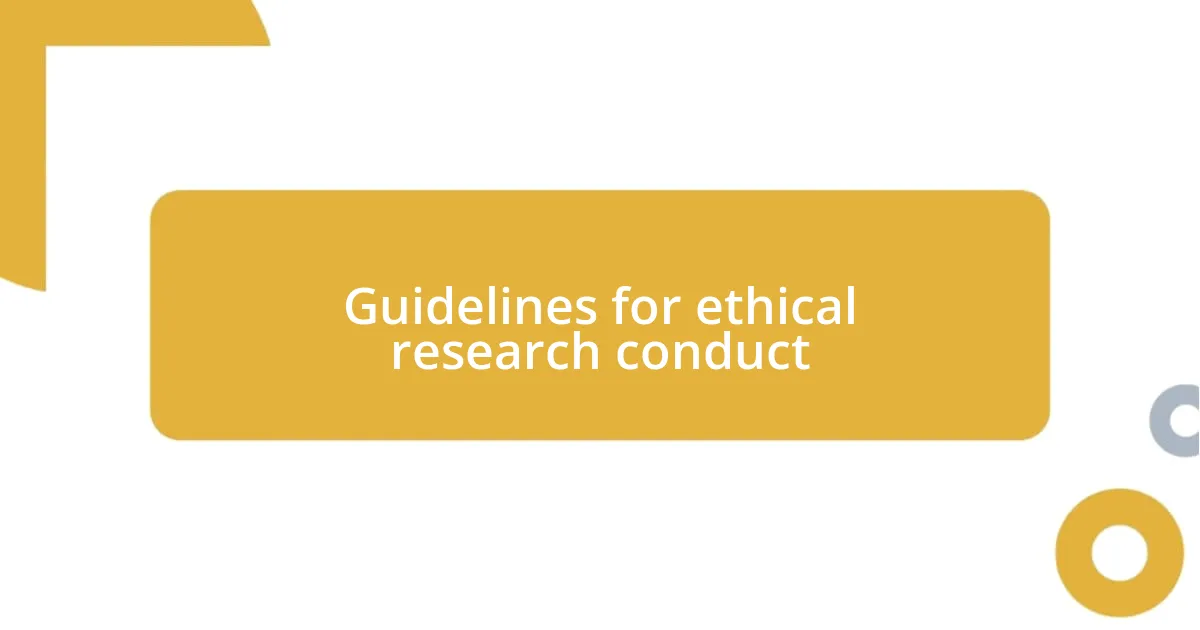
Guidelines for ethical research conduct
When it comes to conducting ethical research, having clear and detailed guidelines is essential. I remember participating in a research project where we implemented a thorough consent process. This experience taught me that informed consent is more than just a signature; it’s about ensuring participants truly understand what they are agreeing to. How often do we stop to think about whether our participants feel comfortable and informed? This reflection deepens the trust that forms the foundation of our research.
Additionally, confidentiality is another crucial aspect that deserves our attention. There was a study I worked on in a tight-knit community, where maintaining anonymity felt like a Herculean task. I learned the importance of being creative in our approach to protect participant identities. It’s a powerful reminder that ethical standards often require innovative solutions, especially when working with vulnerable populations. Have I always succeeded in this? Not always, but it’s a continuous learning process that keeps me engaged and motivated.
Furthermore, accountability isn’t just a principle; it should be woven into the fabric of our research culture. I once faced a situation where a colleague suggested altering results to align with a specific hypothesis. I felt a wave of unease wash over me. At that moment, I realized that our commitment to honesty can make or break our reputations. I firmly believe that embracing transparency in our findings doesn’t just benefit us as researchers; it elevates the entire community. Are we willing to hold ourselves accountable, even in challenging situations? That’s the real test of our integrity.
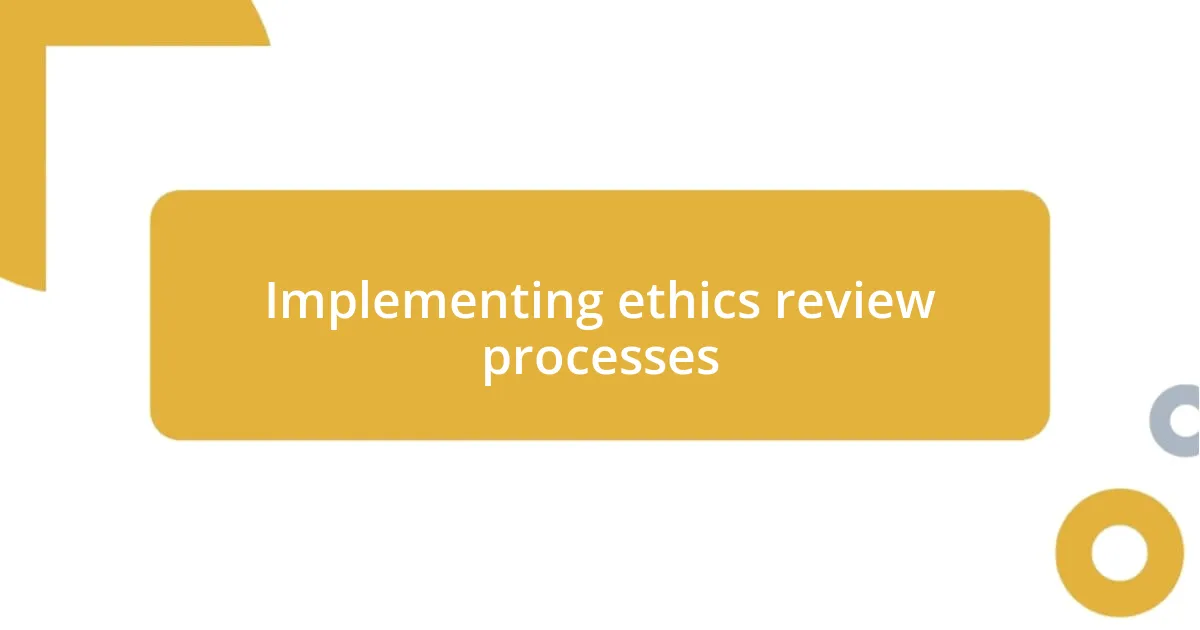
Implementing ethics review processes
Implementing an ethics review process can feel daunting, but I believe it’s a crucial step in safeguarding the integrity of research. I recall a study where we established an internal review board to evaluate our projects before they launched. This not only added a layer of accountability but also fostered a culture of ethical reflection among the team. Have you ever paused to think about how such processes can shape our decisions? It’s fascinating how a little oversight can significantly enhance our commitment to ethical standards.
It’s also important to tailor the ethics review process to different research contexts. For instance, while leading a community health project, we realized that a generic approach wouldn’t suffice. We had to engage with the community to understand their specific concerns and needs, which ultimately informed our review process. This collaboration not only strengthened our ethical stance but also built trust within the community. It leaves me wondering—how often do we actively include those affected by our research in conversations about ethics?
I often reflect on the emotional aspect of these ethics reviews; they can feel like an emotional rollercoaster. During one review, I grappled with the anxiety that our findings might lead to unintended consequences for participants. It was a reminder that ethical research isn’t just about ticking boxes; it’s about nurturing human relationships. I believe that embracing this emotional connection can lead us to truly prioritize the well-being of our participants in every decision we make. What do you think? Does the emotional weight of ethical considerations influence how we approach our research? It’s a question worth pondering.
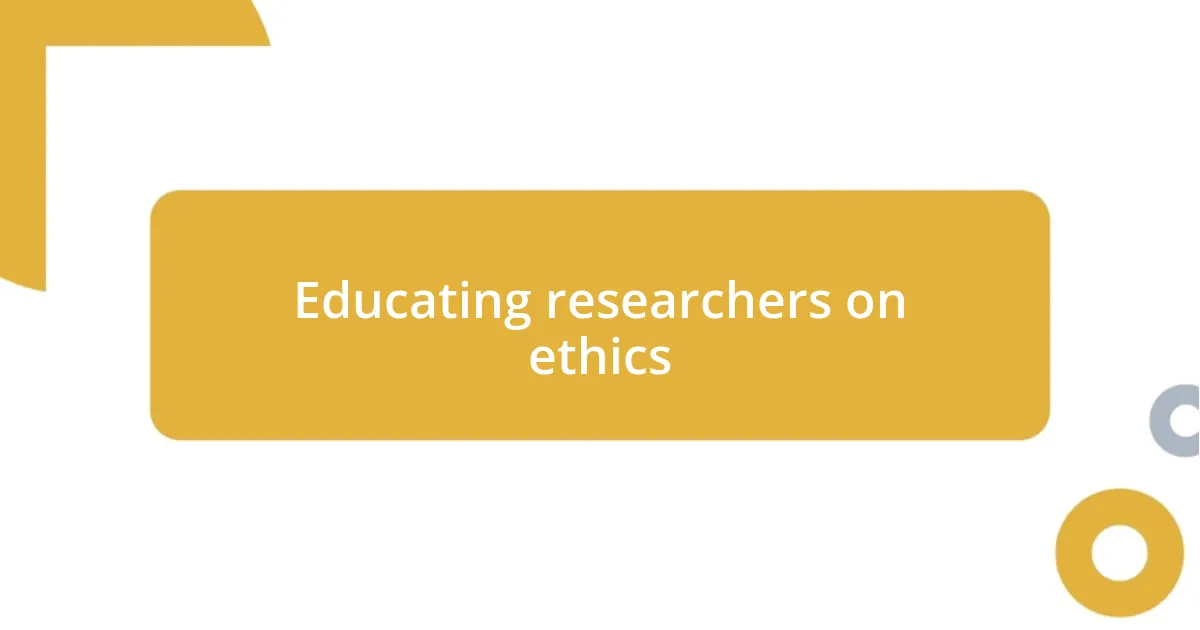
Educating researchers on ethics
Educating researchers on ethics is a key component in fostering a culture that values integrity and respect. I’ve had the chance to lead ethics workshops aimed at guiding novice researchers in understanding the nuances of ethical conduct. Seeing their eyes light up when grasping concepts like beneficence and non-maleficence was genuinely rewarding. How often do we take a moment to reflect on these principles in our daily practice? I believe that instilling this understanding early on can lead to more conscientious research methodologies.
Based on my experience, mentorship plays a vital role in ethical education. In one instance, I paired with a junior researcher grappling with ethical dilemmas in her project. Through collaborative discussions about real-world scenarios, she developed a more profound appreciation for ethical responsibilities. This exchange sparked a sense of accountability not only in her work but in our entire team. Isn’t it fascinating how sharing experiences can illuminate complex ethical challenges? I often think that these personal connections are what truly enrich our understanding of ethics in research.
Most importantly, ongoing education in ethics shouldn’t end after formal training. I’ve found that regular discussions about ethical challenges in team meetings can significantly reinforce these concepts. For example, during a recent team brainstorming session, we encountered a dilemma related to data usage. This sparked a heated yet productive debate, enhancing our collective commitment to ethical standards. Do these conversations feel burdensome sometimes? Perhaps, but they are essential to keeping ethical considerations at the forefront of our minds and actions.
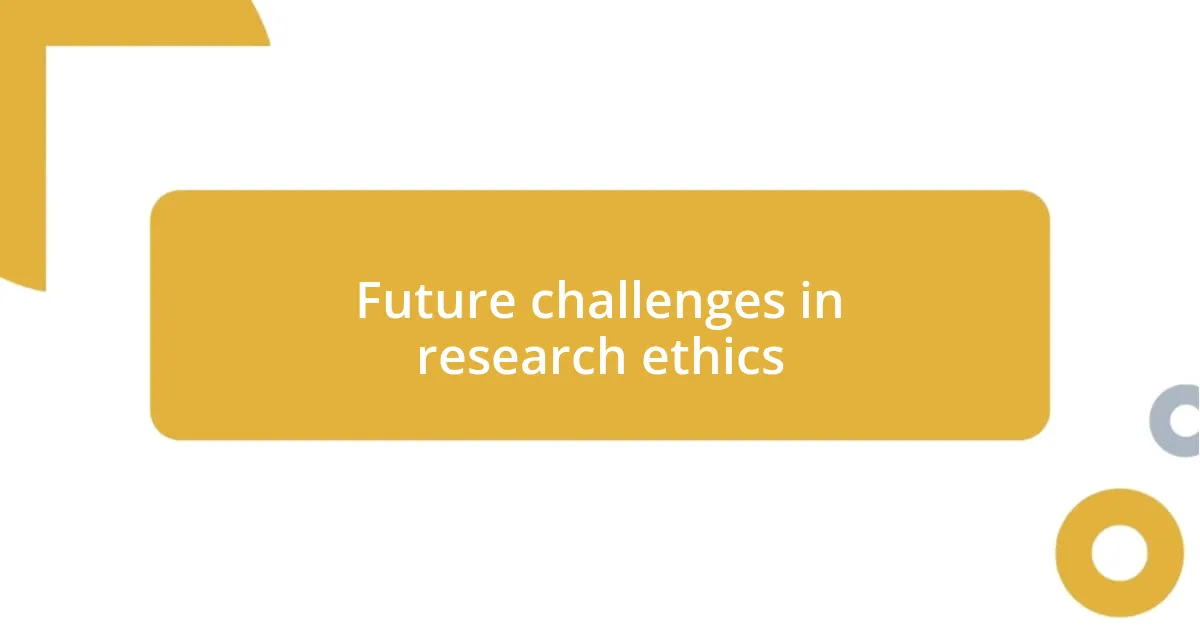
Future challenges in research ethics
Navigating future challenges in research ethics feels like standing at a crossroads where technology and human values intersect. I remember a time when I was involved in a project utilizing AI for data analysis; it made me deeply ponder the ethical implications of algorithmic bias. Are we prepared to tackle the potential biases embedded in algorithms that shape our conclusions? It’s an unsettling thought, but a necessary one.
The growing pressure for rapid results in research can compromise ethical standards. I’ve felt that rush, especially when timelines are tight, and it can be tempting to cut corners. Reflecting on those moments, I wonder—how do we maintain integrity without succumbing to that urgency? Holding steadfast to ethical principles in the face of pressure is a skill we must hone collectively as researchers.
Additionally, as globalization continues to shape research landscapes, I see a significant challenge in reconciling disparate ethical standards across cultures. When I worked on an international health initiative, varying views on consent and privacy were eye-opening. It left me questioning: how can we ensure that our ethical frameworks are inclusive and adaptable? Embracing diverse perspectives will be essential for ethical research as we move forward.










